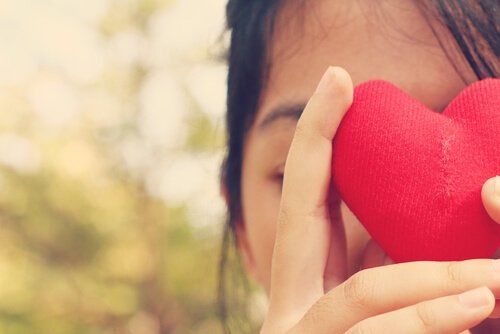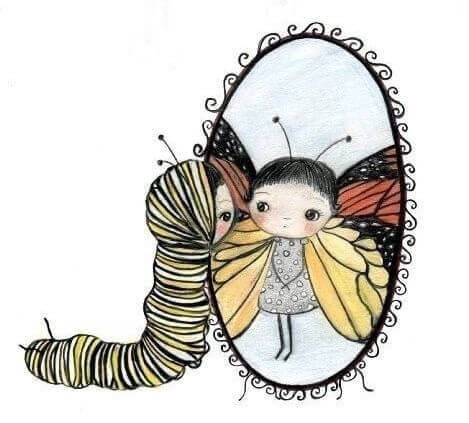Love Yourself, You're Going to Need it

We spend half our lives wanting to be someone else, compromising our emotional balance. We want to have a different body. We think we are too fat or too thin. We wish we were more outgoing. This kind of fighting oneself only generates discomfort. Life is simpler if you love yourself for who you are.
With this, I do not mean that we should stop trying to improve. If we want to make changes we are free to do so. What is important is realizing that outside influences may be motivating us to change. Society has taught us to value ourselves through external goals that are not attainable for much of the population. While we may have a better quality of life than we did hundreds of years ago, I don’t think we are happier.
For example, people who want to improve how they look in order to feel more attractive find themselves faced with an interesting problem. Often, once they have achieved their aesthetic goal, they still do not feel attractive “enough”. Loving ourselves for who we are is the only true way to let go of insecurity.
“To love oneself is the beginning of a lifelong romance.”
-Oscar Wilde
If all else fails, you will only have yourself
Our self-concept, the idea we have of ourselves, is what matters most when it comes to loving yourself. If we are able to value our positive aspects and accept our limitations, we will have a good image of ourselves. On the other hand, if we look at only our negative aspects, we will feel disgusted with who we are and not be able to accept or love ourselves.

Our level of self-esteem determines how we relate in life. Self-esteem is independent of external things, it is more a reflection of the satisfaction we feel about who we are. This satisfaction is more common in optimistic people. They are more likely to focus on their good qualities and accept their weaknesses. In contrast, pessimistic people look at only their most unfavorable characteristics, painting a false picture of themselves.
Moderate optimism can be part of the formula for healthy self-esteem. It is estimated that around 30% of optimism comes from genetics, so that leaves 70% which is learned. We can increase our optimism, nurture rewarding emotional states, foster positive thinking styles, and stop worrying about things that don’t affect us.
“You yourself, as much as anybody else in the entire universe, deserve your love and affection.”
-Buddha
We tend to value others more than ourselves
We often value qualities in others because we do not have the self-confidence or patience to see them in ourselves. In order to value ourselves in a fair and beneficial way, we must first respect ourselves. This develops our confidence.
In general, we do not value ourselves enough. Each one of us has unique qualities, but many of us do not know how to give them the right value. If we do not value ourselves, it does not mean others do not value us. Good self-esteem does not have to depend on the opinions of others, rather it should be the result of our personal evaluation.
When we value ourselves, our personal characteristics and the way we relate to ourselves come into play. This assessment of values determines if we can accept how we are and love ourselves for you we are. Valuing ourselves in an adjusted way means believing that we are capable of facing life. Love yourself, don’t forget. . .

“Love yourself first and everything else falls in line. You really have to love yourself to get anything done in this world.”
We spend half our lives wanting to be someone else, compromising our emotional balance. We want to have a different body. We think we are too fat or too thin. We wish we were more outgoing. This kind of fighting oneself only generates discomfort. Life is simpler if you love yourself for who you are.
With this, I do not mean that we should stop trying to improve. If we want to make changes we are free to do so. What is important is realizing that outside influences may be motivating us to change. Society has taught us to value ourselves through external goals that are not attainable for much of the population. While we may have a better quality of life than we did hundreds of years ago, I don’t think we are happier.
For example, people who want to improve how they look in order to feel more attractive find themselves faced with an interesting problem. Often, once they have achieved their aesthetic goal, they still do not feel attractive “enough”. Loving ourselves for who we are is the only true way to let go of insecurity.
“To love oneself is the beginning of a lifelong romance.”
-Oscar Wilde
If all else fails, you will only have yourself
Our self-concept, the idea we have of ourselves, is what matters most when it comes to loving yourself. If we are able to value our positive aspects and accept our limitations, we will have a good image of ourselves. On the other hand, if we look at only our negative aspects, we will feel disgusted with who we are and not be able to accept or love ourselves.

Our level of self-esteem determines how we relate in life. Self-esteem is independent of external things, it is more a reflection of the satisfaction we feel about who we are. This satisfaction is more common in optimistic people. They are more likely to focus on their good qualities and accept their weaknesses. In contrast, pessimistic people look at only their most unfavorable characteristics, painting a false picture of themselves.
Moderate optimism can be part of the formula for healthy self-esteem. It is estimated that around 30% of optimism comes from genetics, so that leaves 70% which is learned. We can increase our optimism, nurture rewarding emotional states, foster positive thinking styles, and stop worrying about things that don’t affect us.
“You yourself, as much as anybody else in the entire universe, deserve your love and affection.”
-Buddha
We tend to value others more than ourselves
We often value qualities in others because we do not have the self-confidence or patience to see them in ourselves. In order to value ourselves in a fair and beneficial way, we must first respect ourselves. This develops our confidence.
In general, we do not value ourselves enough. Each one of us has unique qualities, but many of us do not know how to give them the right value. If we do not value ourselves, it does not mean others do not value us. Good self-esteem does not have to depend on the opinions of others, rather it should be the result of our personal evaluation.
When we value ourselves, our personal characteristics and the way we relate to ourselves come into play. This assessment of values determines if we can accept how we are and love ourselves for you we are. Valuing ourselves in an adjusted way means believing that we are capable of facing life. Love yourself, don’t forget. . .

“Love yourself first and everything else falls in line. You really have to love yourself to get anything done in this world.”
This text is provided for informational purposes only and does not replace consultation with a professional. If in doubt, consult your specialist.







